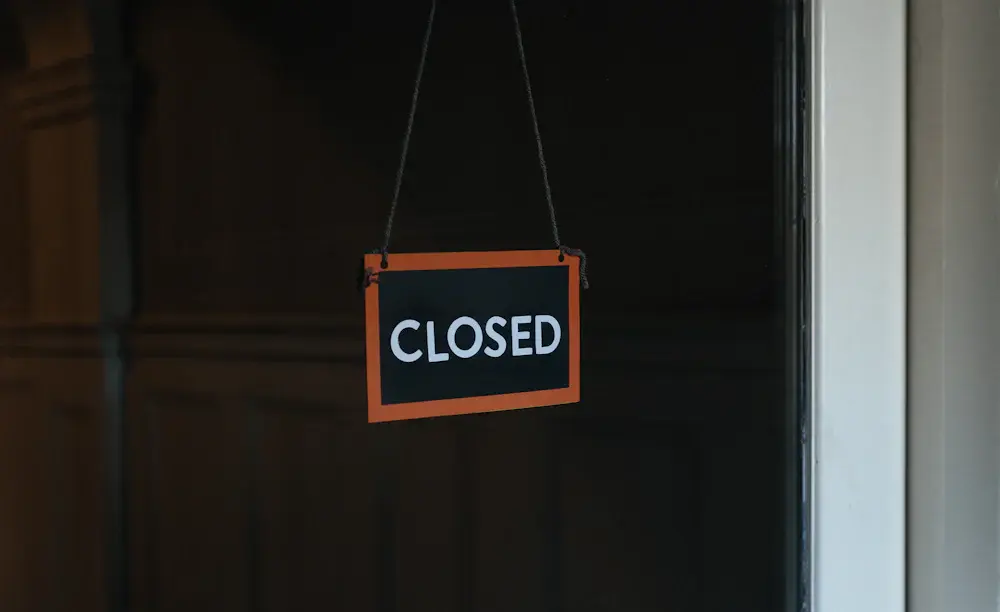Bankruptcy is the administration of the affairs of an insolvent individual by a Trustee in the interests of the creditors. When a person becomes bankrupt, the control of all of his or her assets, (with certain exceptions) passes to the Trustee who is an Insolvency Practitioner. Their job is to sell them and distribute the proceeds to the creditors. We specialise in giving bankruptcy advice and helping individuals through what is often a stressful process.
Subject to certain exemptions, once the order is made, control of the bankrupt’s assets normally passes to the Official Receiver and normally then to the Trustee. The bankrupt loses any rights to his/her property apart from certain items necessary for their basic domestic and business use, and certain pension rights. It is essential, therefore, that the right bankruptcy advice is given and that all other options, including an IVA, have been investigated.
Need help?
If your business is facing insolvency, the sooner you contact us, the more we can help.
The Pros and Cons of Declaring Bankruptcy
The Pros
- Creditors cannot take any further action against you unless the debts are secured on your home.
- If you have sufficient income, an income payments order will be made whereby you have to pay a monthly amount for a maximum period of 3 years. This should be an amount you can afford.
- The creditors have no say in whether they agree to the making of a Bankruptcy Order.
The Cons
- Your credit rating will be affected.
- Your assets will be sold so that your creditors can be repaid some or all of their debt.
- It may affect your employment
- If you are in business, it may be very difficult to continue your trade.
- Details of your bankruptcy will be held on the public Individual Insolvency Register and published in the London Gazette.
- You may have a ‘bankruptcy restriction order’ made against you for dishonesty or ‘unfit conduct’ if the circumstances merit this.

via Google Reviews
Key Areas of Personal Bankruptcy
Bankruptcy is a highly regulated process, so getting the right bankruptcy advice from an experienced Insolvency Practitioner is essential.
Bankruptcy and The Home
There are special rules regarding the bankrupt’s home. Generally speaking, if the bankrupt has equity in a house, it may have to be sold. However, the law discourages a Trustee from taking steps to force a sale through the court during the first 12 months of the bankruptcy where the bankrupt is married or has young children living with him.
The Trustee has three years from the date of the bankruptcy order to sell the house or otherwise deal with the bankrupt’s interest in it. If they do not do so within that time, the property will revert to the bankrupt. And if the value of the equity is less than £1,000 the Trustee will not be able to sell it at all.
Bankruptcy and Surplus Income
If the bankrupt has surplus income above his/her needs and those of his/her dependants, they may be required to make contributions to their creditors for up to three years.
The Trustee may also claim any property acquired by the bankrupt for as long as the bankrupt remains undischarged from bankruptcy, such as assets left in a will. Such acquisitions will be realised for the benefit of creditors.
The Bankruptcy Order
Bankruptcy proceedings start with the making of a Bankruptcy Order by the Court. Immediately on the making of the order an official called the Official Receiver takes over control of the bankrupt’s estate pending the appointment of a Trustee.
The Official Receiver is an officer of the court and a member of the Insolvency Service, an executive agency within the Department for Business & Trade. Where there are significant assets an Insolvency Practitioner will usually be appointed to act as Trustee, either by a meeting of creditors or by the Secretary of State. Where no Insolvency Practitioner is appointed, or where there is a vacancy in the office of Trustee, the Official Receiver acts as Trustee.
The Creditors
An application for a bankruptcy order may be made by any creditor owed more than £5,000, or by the individual himself.
During the bankruptcy, the bankrupt is subject to certain restrictions. For example, he/she must not obtain credit of more than £500 from anyone without telling that person that they are an undischarged bankrupt. They must not carry on business under a name different from that under which they were declared bankrupt without disclosing the fact that they are an undischarged bankrupt, and they may not act as a Company director without the Court’s consent. The bankrupt’s credit rating will also be affected and some employers will not employ a bankrupt.
When is a Bankrupt Discharged?
The bankrupt will usually be discharged from bankruptcy automatically one year after the making of a Bankruptcy Order, or sooner if the Official Receiver decides to close his file early. Once discharged, the bankrupt is released from his bankruptcy debts, with some exceptions such as court fines, student loans and matrimonial debts.
After discharge, the bankrupt does not have any right to take back from the Trustee any property that was part of the estate in the bankruptcy, and the Trustee will remain in office for as long as is necessary to sell the property and distribute the proceeds to the creditors.
Are you looking for Bankruptcy advice?
It sometimes seems that Bankruptcy is the only option available to an insolvent individual. If you are in any doubt as to what to do, or are confused about your options you should seek professional bankruptcy advice from an Insolvency Practitioner, such as Antony Batty & Co.
We have acted on a number of high-profile Bankruptcies and through investigations into the Bankrupt’s affairs we have been able to maximise returns for creditors.


